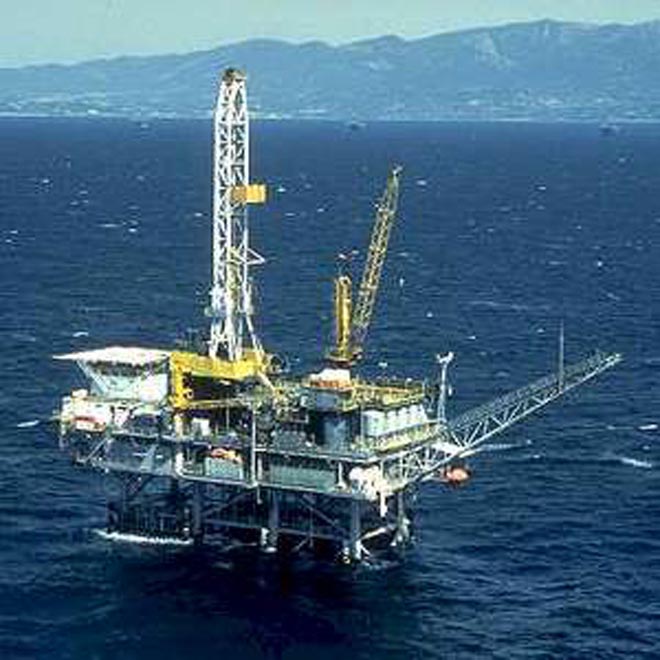Azerbaijan, Baku, Sept 29 /Trend /
Azer Ahmedbeyli, Trend analytical centre expert
Almost 20 years have passed since 1994, when Azerbaijan signed the first PSA-contract during the period of independence of the Caspian countries to develop the Azeri-Chirag-Guneshli field.
During this period a number of large hydrocarbon fields, including Shah Deniz, Umid, Absheron and one of the world's largest oil fields Kashagan were discovered in the Caspian Sea. Few people doubt that this is only the beginning, and there are huge oil and gas reserves along the sea bed. This is stipulated by the fact that the interest of Western companies in the exploration and development of prospective structures in the Caspian Sea does not only abate, but accelerates every year.
However, the Caspian littoral countries face a number of challenges that affect the process of discovery, development, production and transportation of hydrocarbons. One of these challenges is the shortfall of a drilling infrastructure.
As for Azerbaijan, taking into account the increasing volume of drilling operations on discovered and prospective structures, the State Oil Company of Azerbaijan (SOCAR) made a decision to build an additional last generation four rigs worth up to $4 billion within five years. The construction of the first as it is known is scheduled for late 2012.
The end justifies the means. Azerbaijan together with its partners will be able to optimise and accelerate the exploration drilling on prospective structures thanks to these rigs and therefore hasten the discovery of new fields, accelerate the exploitation of existing ones and will be able to earn additional income by renting them in case of necessity.
The brief details about the number of rigs located in the Caspian Sea, their type, owners and the current status are mentioned below.
According to the international oil and gas online resource Rigzone, there are 28 drilling rigs in the Caspian Sea, of which 17 are active, seven in continuous conservation, one on standby and three in the construction phase.
Around 20 of the total number of rigs have been installed in the Azerbaijani sector of the Caspian Sea. Seventeen of them are old drilling platforms owned by SOCAR, built between1970-1980. They have been installed mainly in the shallow part of Absheron. At present, drilling operations are being conducted at 10 rigs. Seven are in continuous conservation.
The remaining three rigs operating in the Azerbaijan sector of the Caspian Sea are Istiqlal, Dede Gorgud and the Heydar Aliyev rig. According to media reports, almost all the volume of drilling operations on the current PSA-contract falls to these rigs which are forced to work to a tight schedule.
The Istiqlal rig was built in 1993 and owned by SOCAR, and is semi-submersible type capable of operating in water depths up to 700 metres with a drilling depth of up to 6000 m
The Dede Gorgud rig: built in 1980 is also owned by SOCAR and is a semi-submersible type working in water depths up to 500m, to a drilling depth up to 6100m
Currently the largest in the Caspian Sea, the Heydar Aliyev rig was built in 2003 and is owned by Maersk Drilling. It is a semi-submersible type operating at a depth of 900m, with the depth of drilling being up to 9100 m
There is also the Gurtulush jack up rig, commissioned in 2000 and designed for drilling in depths from 10 to 105 metres at a depth of up to 8000 m. Its present status is unknown.
What do our neighbours in the Caspian Sea have?
Astra: dislocation - Kazakhstan, owner - Eurasia Drilling Company, date of commissioning - 1983, type - jack, water depth - 35m, drilling depth - 4800m, status - active.
Parker Rig 257: dislocation - Kazakhstan, owner - Parker Drilling, date of commissioning - 1977, type - drilling barge, water depth - 5.5 m, drilling depth - 9100 m, status - conservation in standby.
Iran Khazar: dislocation - Turkmenistan, owner - National Iranian Oil Company, date of commissioning - 1995, type - jack, water depth - 90m, drilling depth - 6100m, status - active.
Saturn: dislocation - Turkmenistan, owner - Eurasia Drilling Company, date of commissioning - 2000, type - jack, water depth - 100m, drilling depth - 7900m, status - active.
Iran Amir Kabir: dislocation - Iran, owner - National Iranian Oil Company, date of commissioning - 2009, type - semi-submersible, water depth -1000 m, drilling depth - 6100 m, status - active.
Caspian Explorer rig, which will operate in shallow water (2.5 - 5.5m) with a maximum drilling depth of up to 6000m, was commissioned in Kazakhstan in June 2012. Type of rig - immersion-type.
This is not a complete list. There are a number of rigs operating in shallow water at a depth from 1.5 to 10 metres, among them Chilim, Lotos, Ispolin and others.
Rigs under construction
Teniz Burgylau Jackup TBN 1: dislocation - Kazakhstan, owner - Teniz Burgylau LLP, date of commissioning - 2015, type - jack, water depth - 120m, drilling depth - 6100m
TBN1: dislocation - Russia, owner - Eurasia Drilling Company, date of commissioning - 2012, type - jack, water depth - 100m, drilling depth - 9100m
Caspian Driller: dislocation - Russia, owner - Dragon Oil, date of commissioning - 2012, type - jack, water depth - 90m, drilling depth - 9100m






